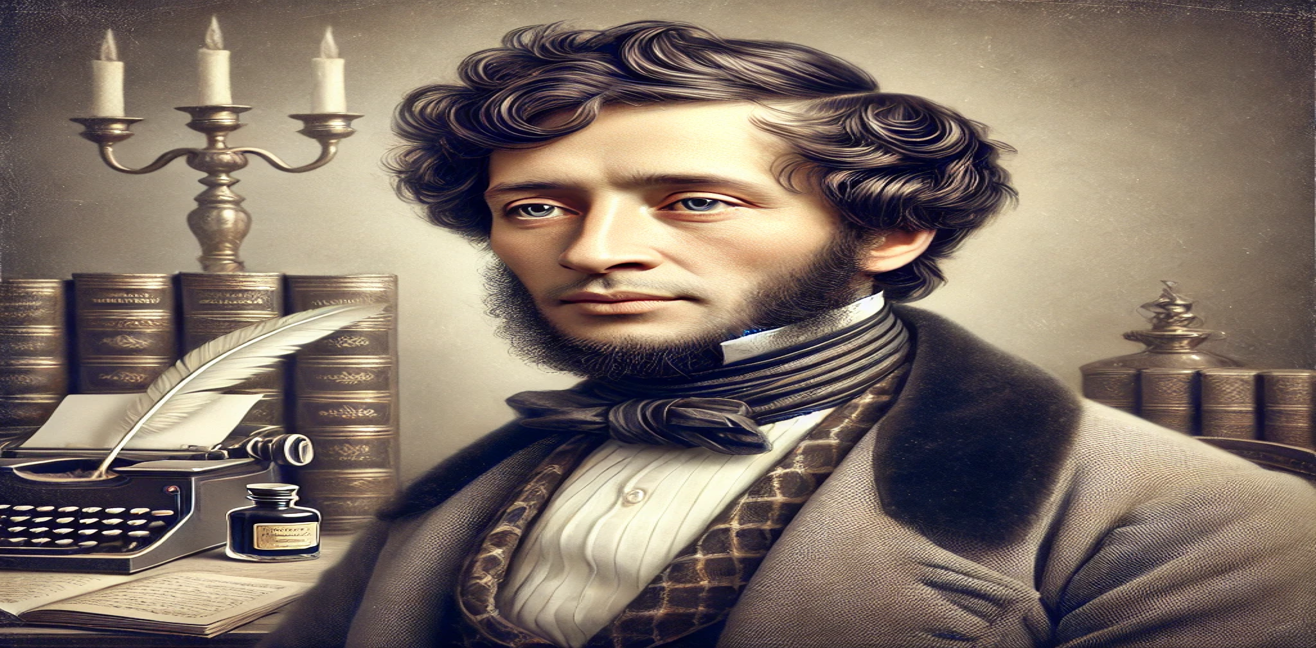May 26, 1799 marks the birthday of Aleksandr Sergeyevich Pushkin, one of the greatest names in world literature. Pushkin is considered not only a cornerstone of Russian literature but also of world literature. His works, writing style, and impressive storytelling have profoundly influenced the Russian language and literature. Pushkin’s life and works are still admired with great respect in the literary world today.
Pushkin’s Life
Aleksandr Pushkin was born in Moscow to an aristocratic family. His family had a respected place in Russia, which greatly contributed to Pushkin’s education and literary career. From a young age, his interest and talent in literature quickly made him a notable writer.
After completing his education, Pushkin focused on his literary career. However, his liberal and critical views in his writings were not well received by the Russian Empire’s government, leading to several exiles. These exiles greatly impacted his writing and personal life.
Pushkin’s Literary Career and Works
Aleksandr Pushkin is regarded as the founder of modern Russian literature. His works not only changed the literary norms of the time but also enriched the Russian language significantly. Here are some of Pushkin’s most famous and influential works:
- Eugene Onegin “Eugene Onegin” is one of Pushkin’s most famous works. This novel is written in verse and is considered a great innovation in Russian literature. The novel addresses Russia’s social life and the decline of the aristocracy. Pushkin’s character descriptions and deep psychological analyses make this work unique in the literary world.
- The Captain’s Daughter “The Captain’s Daughter” is a historical novel set during the Pugachev Rebellion of 1773-1774. In this novel, Pushkin offers a deep look into Russia’s history and social structure. The work portrays the love between a young officer and an aristocratic girl while revealing the social and political conflicts of the time.
- The Bronze Horseman “The Bronze Horseman” is one of Pushkin’s epic poems. The work is an elegy to the city of St. Petersburg, founded by Peter the Great, and focuses on the great flood of 1824. The poem skillfully explores the conflict between individual destiny and state power.
Pushkin’s Life and Tragic End
Aleksandr Pushkin’s life was filled with political exiles, duels, and tragic events. His sympathy for the Decembrist Revolt of 1825 led to his exile once again. The works written during this period reflect his mood and the difficulties of the time.
Pushkin’s life tragically ended in 1837. Due to rumors and slanders about his wife, he entered into a duel with French-born Georges d’Anthès, which resulted in severe wounds, and he died a few days later. Pushkin passed away at the age of only 37. However, his literary legacy continued to live on and has maintained its influence to this day.
Pushkin’s Legacy
Aleksandr Pushkin is remembered as the author who laid the foundations of modern Russian literature. His works have had a profound impact not only in Russia but globally. Pushkin’s writing style, language usage, and storytelling have inspired many writers and poets.
Pushkin’s legacy remains alive in the literary world today. His works have been translated into many languages and are read around the world. Pushkin played a significant role at the start of what is called the golden age of Russian literature and has secured an immortal place in literary history.
Conclusion
May 26, 1799 marks the birthday of Aleksandr Sergeyevich Pushkin, one of the greatest figures in world literature. Pushkin’s life, works, and literary legacy continue to be admired and respected today. His writings not only deeply influenced Russian literature but also shaped world literature.
Pushkin’s life and works were a turning point in the literary world. Every work that came from his pen offers deep thoughts and emotions to its readers. Pushkin, as the genius who laid the foundations of modern literature, has been immortalized in the pages of history.



